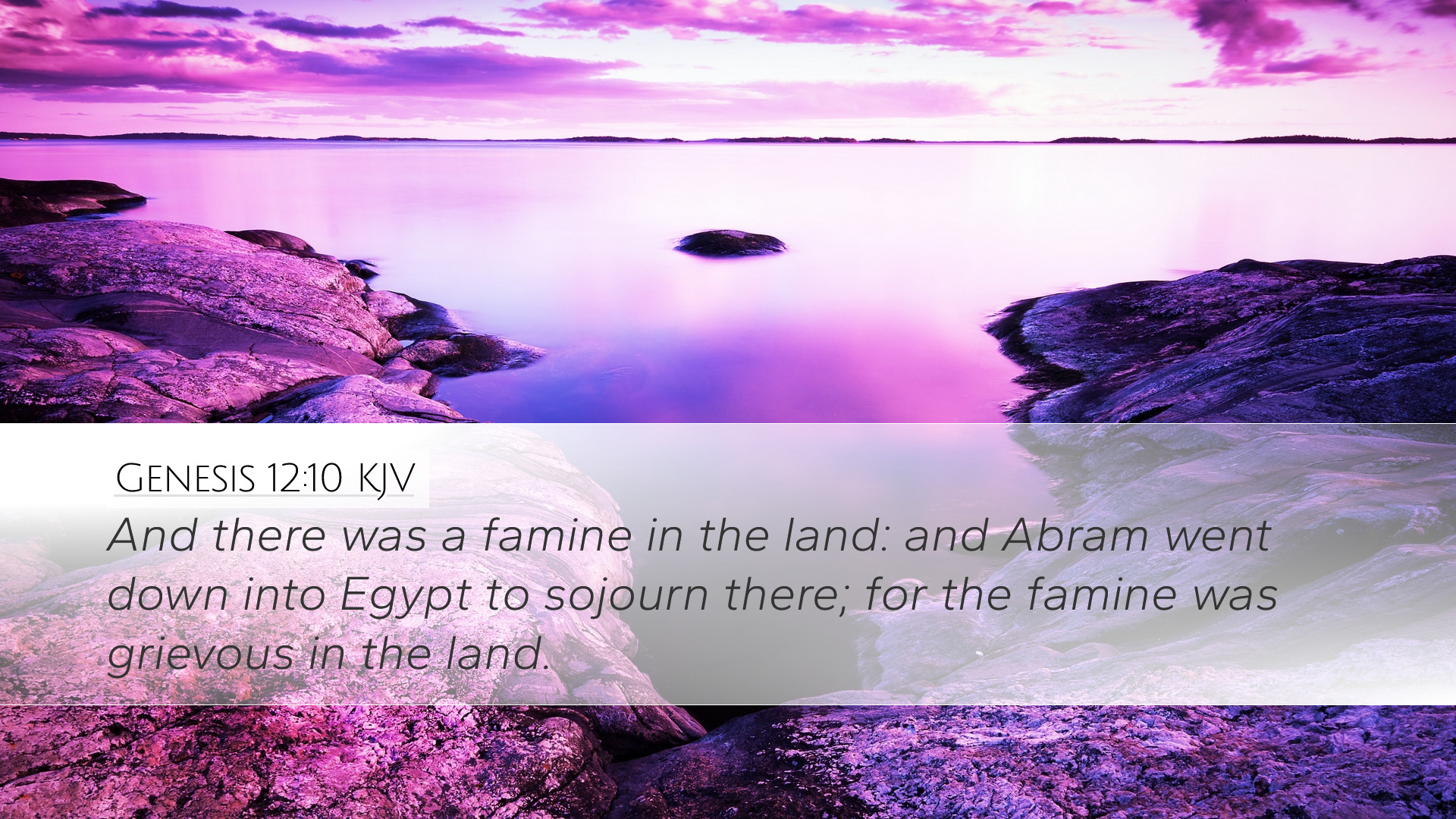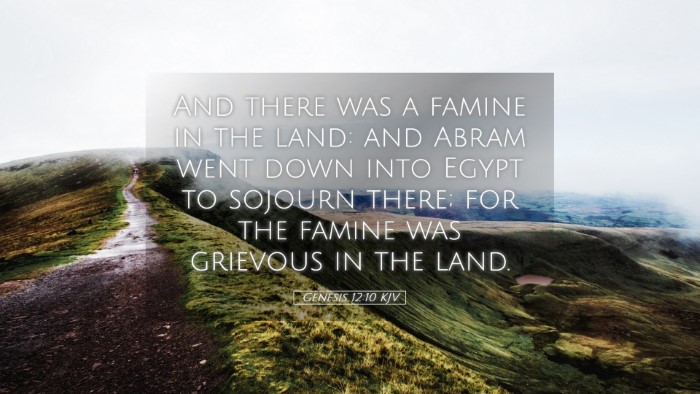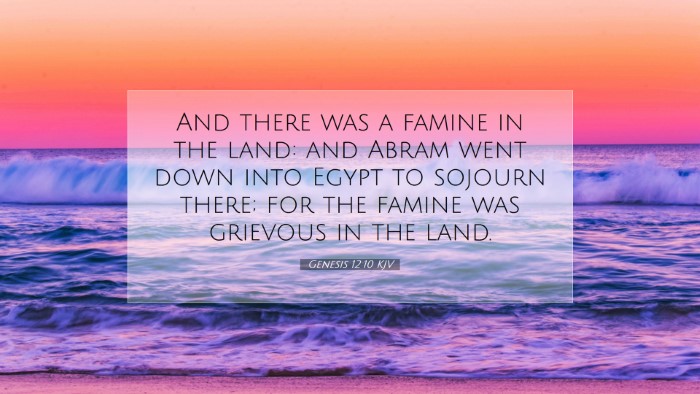Commentary on Genesis 12:10
Genesis 12:10 states, "Now there was a famine in the land, and Abram went down to Egypt to dwell there, for the famine was severe in the land." This verse introduces a significant moment in Abraham's journey and reveals important theological and practical lessons for understanding faith, divine provision, and human response under duress.
Contextual Background
To fully comprehend the gravity of this verse, it is essential to consider the broader narrative of Abram's life, the socio-economic context of the time, and the nature of famines in the ancient Near East. Famines were common and often devastated regions, leading those affected to migrate in search of food.
Abram's Journey of Faith
Abram, called by God to leave his homeland and venture into an unknown future, stands as a figure of faith. This verse marks a pivot point in that journey—one that questions how faith interacts with fear and practical needs.
Insights from Matthew Henry
According to Matthew Henry, this verse illustrates Abram's human frailty. He insists that despite Abram's earlier faith demonstrated in leaving Ur, the pressure of famine propelled him to Egypt, where he would face new challenges. Henry notes that "faith may stand firm in a trial, yet falter under a temptation." Thus, the famine serves as both a test of faith and a revealing moment of vulnerability for Abram.
Albert Barnes' Perspective
Albert Barnes expands on this concept, emphasizing that Abram's decision to go to Egypt signifies a lack of reliance on God's provision. Barnes suggests that while it was prudent to seek sustenance, Abram’s choice to seek refuge in Egypt indicates a detachment from God’s promise—a warning that even the faithful can err when guided by immediate circumstances rather than divine assurance.
Adam Clarke's Commentary
Adam Clarke offers further revelation by addressing the significance of Egypt in the biblical narrative. He suggests that Egypt often symbolizes the world and human reliance rather than dependence on God. Clarke posits, "Abram's descent into Egypt indicates a reliance on human solutions rather than divine intervention." This descent foreshadows a recurring biblical theme where God’s people often seek worldly aid and fail to trust fully in divine providence.
Theological Implications
The move to Egypt raises profound theological questions regarding faith, reliance on God, and the moral dilemmas faced by believers when confronted with significant hardships. This narrative challenges the faithful to examine their own responses in times of crisis.
Faith and Fear
Abram's journey south to Egypt does not negate his faith, but it introduces a conflict between his trust in God's promise and his instinctual fears ignited by famine. This tension is relatable for believers today who may waver in faith when confronted with physical needs or threats.
Dependence on Divine Provision
Pastors and theologians can draw lessons about the importance of dependence on God's provision rather than succumbing to worldly pressures. This dependence is vital to sustain a robust faith amid uncertainties, reminding believers that God is a faithful provider who sustains in all circumstances.
Practical Applications
The verse encourages practical applications for those in ministry and scholarship. Understanding the dynamics of faith and pragmatism can aid pastors in providing guidance to congregants who may struggle with doubt in dire situations.
- Encouragement of Community Support: Just as Abram relied on the community of families, church communities today must support each other in times of need, reflecting God’s provision through fellowship.
- Assessment of Responses to Crisis: This verse prompts ministers and scholars to assess how believers react to crises. Are they turning to God first, or are they seeking worldly solutions without prayerful consideration?
- Strengthening Faith Practices: Encourage practices that foster faith in God’s provision, such as prayer, fasting, and scripture readings that remind congregation members of God’s past faithfulness.
Conclusion
Genesis 12:10 serves as a poignant reminder of the interplay between faith and circumstance. As students, scholars, and pastors engage with this text, they are invited to reflect on their approaches to crises, interpersonal reliance, and ultimate dependence on divine provisions. Through the insights of Matthew Henry, Albert Barnes, and Adam Clarke, it is evident that this verse transcends its narrative to become a lesson in faithfulness, encouraging believers to remain steadfast despite the pressing trials of life.


